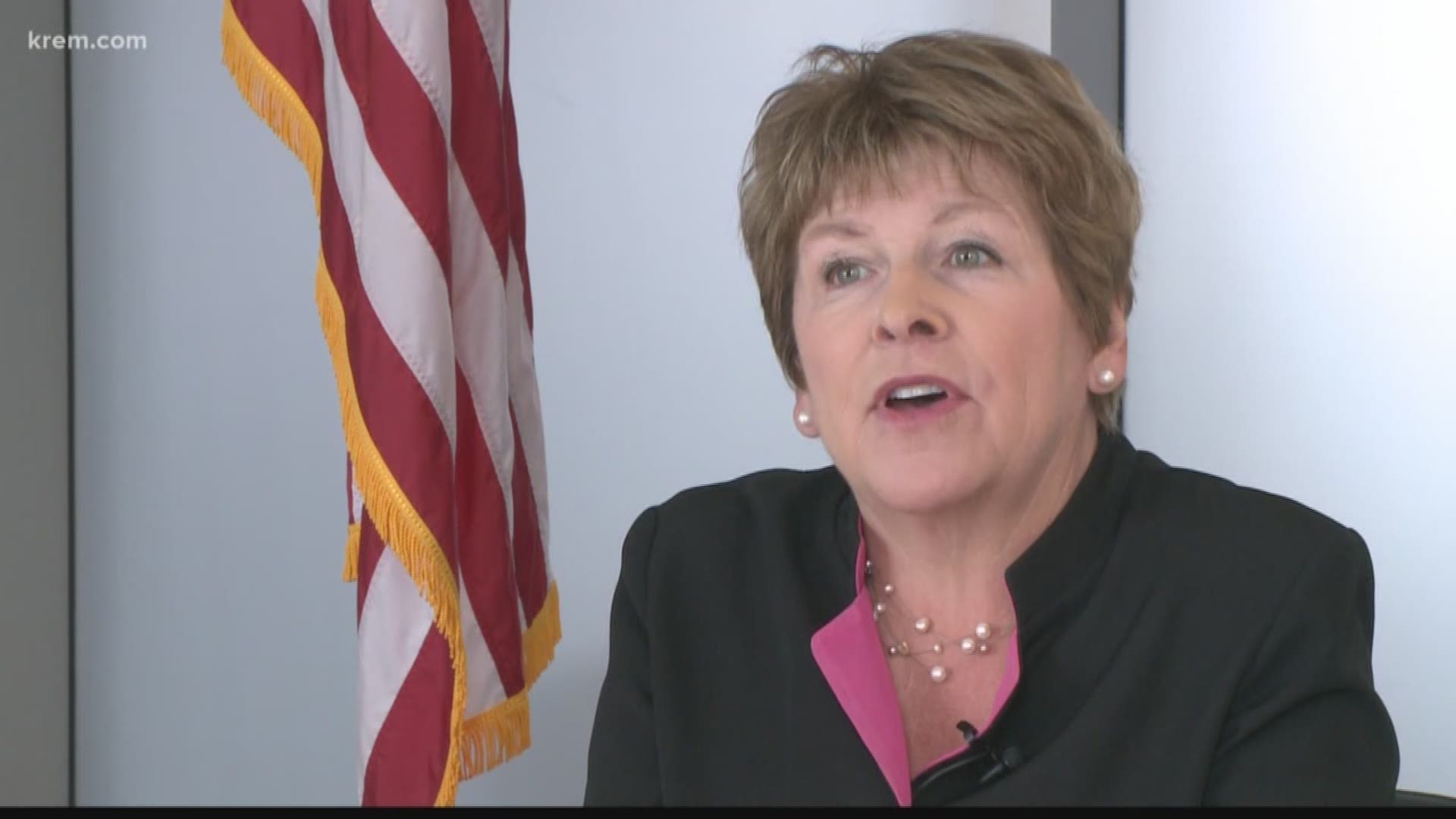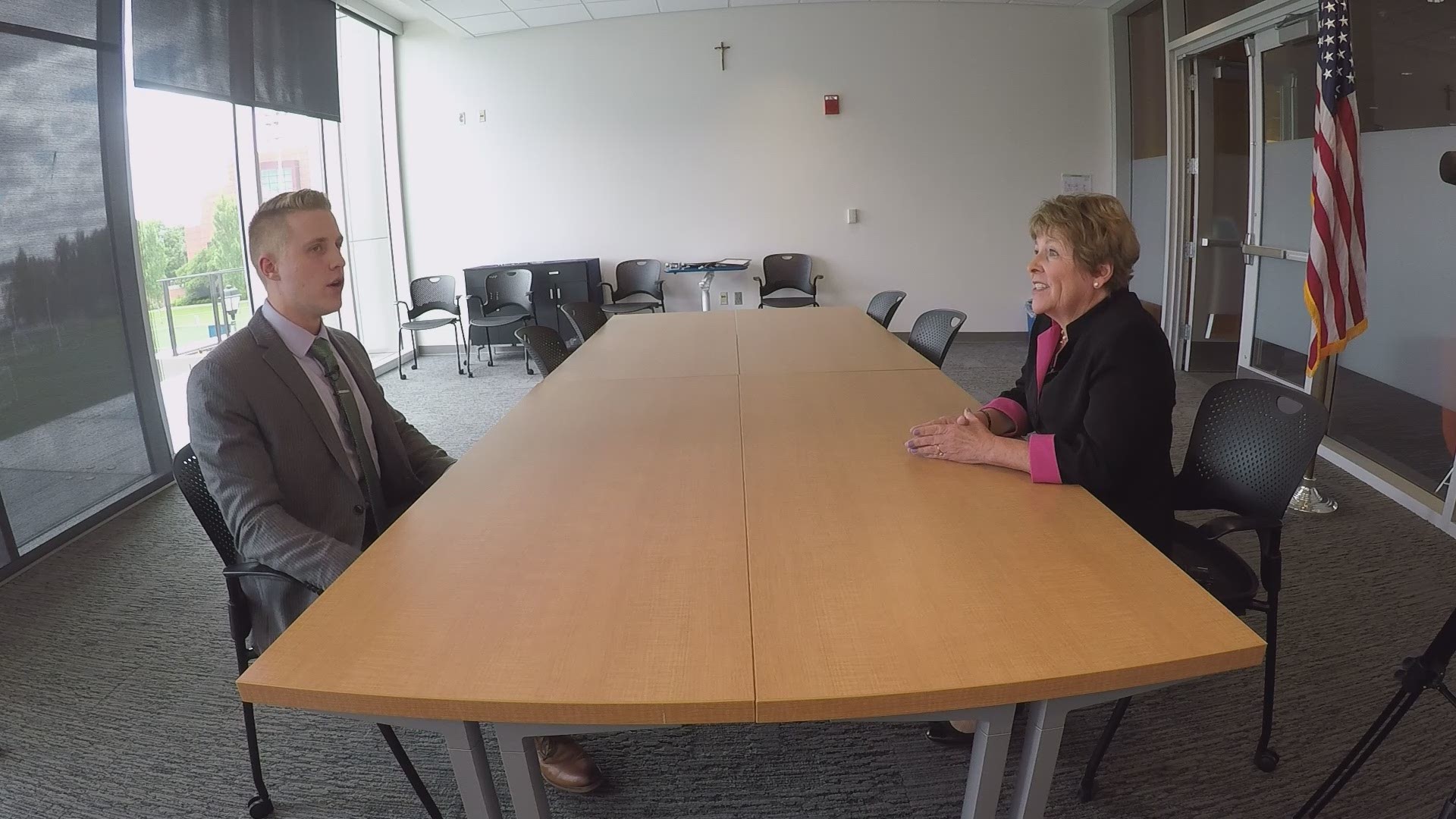SPOKANE, Wash.-- KREM 2 viewers voted on the top issues to them this election cycle, and they said that health care tops the list.
KREM 2 reporter Rob Harris sat down with candidates for Washington's 5th District to get answers on some current health care concerns.
If you had to give your current take--like a "diagnosis"--of health care in America right now, what would it be?
It’s too expensive, and still despite the improvement that’s happened over the last several years not everyone has the access that they need, especially in rural parts of our district.
So, I guess the follow up question is: what kinds of things do you do to work on that?
I think there are a couple things that are happening right now that are actually living in the wrong direction. And so number one would be to change those or reverse course. One of them is a gag rule that’s been put on providers of family planning and health services particularly for women, and there are 80,000 women in Washington state that could be negatively affected by this--and actually some young men, too, who go to family planning facilities like Planned Parenthood to get testing for cancer and other diseases. The president put this gag order in place that says the providers that don’t comply will lose their federal funds and that means people will lose access to health care.
(A little background --what Brown is referring to is a move at the end of last month from the Trump administration to block funds to programs that offer or refer abortions. To be clear, federal funds were already barred from being used for abortion services. This goes one step further, and prevents facilities that receive Title X funding from referring women to abortion options, unless the woman has already decided on terminating her pregnancy on her own.)
Is there a country elsewhere in the world right now that you think is doing a particularly good job with health care and health care coverage?
Most of the European countries--virtually all--have universal coverage, and they use different mechanisms to pay for it and finance it. Some of those work better than others. I don’t know that I would pick out a particular country because we can’t start from ground zero and start all over again. We’ve got to go from what we’ve got now and modify it. So we’ve got to build on what currently works, like Medicare. We need to expand it, because it’s currently a universal system for everyone who is 65 years and over, and although it has some problems most people are satisfied with what they get from it and we could build on that.
A lot of people point to the longer life expectancy and lower cost for some countries in Europe. [But] They’re also smaller, and their populations are healthier to begin with, so how do we tailor what may be working in other countries and make it work for our larger
more diverse country?
For one thing, we take a public health approach which means we don’t segment out physical health from mental health. Substance abuse and mental health issues are really important, and they impact our health care costs and structure. And primary health care, where you get prevention and screening and treatment for those minor things that everyone experiences--to me that’s not something that should be segmented in anyway. That should be available to all.
And you think that universal, affordable health care is accessible for Americans without losing quality of health care?
Oh, absolutely. In fact, it would improve our health care outcomes because there are too many people right now who are afraid of the cost, the co-payment, the premium, and therefore they don’t go get the kind of primary, preventive care that would save money down the road.
The president just signed, and Representative Cathy McMorris Rodgers backed, 'right to try.' What are your thought on 'right to try?'
So, I don’t think this goes far enough or does enough, and I think there are some really obvious things we could be taking on to address the cost of prescription drugs that aren’t being addressed by the current leadership in Congress. In particular, I support a bill by Senator Amy Klobuchar where we would use the purchasing power of the federal government and negotiate with the pharmaceutical companies for lower drug costs. I’ve heard from constituents. A woman in Newport, her insulin costs several times what it would cost north of the border in Canada. A woman wrote to me on my Facebook page and said that the Osteoporosis medication prescribed by her doctor was $125 per pill and she frankly just could not afford that. So, I think the current leadership in Congress and the administration is not taking on the pharmaceutical industry the way they could and should to lower the cost of prescription drugs.
Do you approve, though, of the idea that a person who has a terminal illness can try a treatment or a prescription that hasn’t been fully approved by the FDA if they want to?
In and of itself, I don’t oppose that. I think that it’s going to benefit a small group of people, likely those with the most resources, to be able to seek out that type of care which means, again, there’s a large percentage of people that will no benefit. And there are these really obvious issues that are affecting all of us that are not being addressed by Congress.
Do you think that, as we see more and more states start to follow Washington and Colorado with legalization of marijuana, that we should be fighting more to get at least medical marijuana for those who want it?
I'm glad you said that, because that was the other issue that I was going to point out that we could be addressing today.. I definitely support the Medicinal Marijuana Research Act. It’s a top issue for veterans. We did this in Washington state quite a while ago in a bipartisan way. We started paving the way to do research at the University of Washington and Washington State University on medicinal cannabis, and the federal government should be doing this as well. And our veterans deserve to have that kind of research done that could relieve their symptoms. It’s waiting to be passed by Congress. I hope it happens soon.
Sort of similar issue, but we see it permeate a lot of different areas within the government and our lives day to day is opioid addiction and the prescription of opioid drugs. So how do we start to help those people who are struggling with an opioid addiction without taking them away from people who are finding some sort of respite from them?
So, it’s really unfortunate but I have to say that I think Congress and members of both parties were a little bit asleep at the wheel here in not taking appropriate action earlier to stem the flow of these medications that were over prescribed and illegally dumped on our streets which contributed to the opioid crisis. At this point, there’s no reason we shouldn’t have some on-demand treatment available in every county in eastern Washington. People need to be able to access treatment immediately, and right now there are waiting lists and lack of access. And I’d also like to see our research universities pulled into this because there are medications that are harm-reduction medications that could be utilized by people who are addicted to opioids in a way to help transition them away from the addiction.


